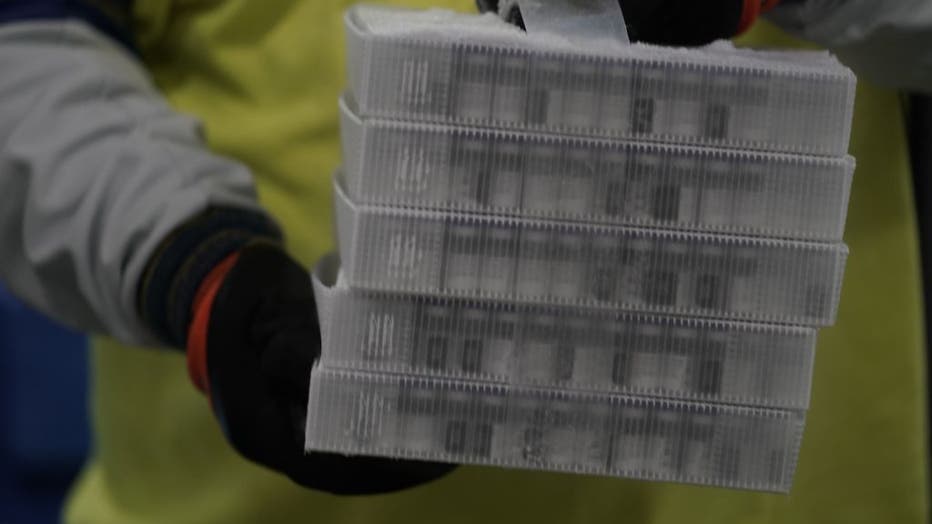US to begin world trade talks to more widely distribute COVID-19 vaccine
The U.S. top trade negotiator will begin talks with the World Trade Organization on ways to overcome intellectual property issues that are keeping critically needed COVID-19 vaccines from being more widely distributed worldwide, two White House officials said Sunday.
The White House has been under pressure from lawmakers at home and governments abroad to join an effort to waive patent rules for the vaccines so that poorer countries can begin to produce their own generic versions of the shots to vaccinate their populations.
The U.S. has been criticized for focusing first on vaccinating Americans, particularly as its vaccine supply begins to outpace demand and doses approved for use elsewhere in the world but not in the U.S. sit idle.
U.S. Trade Representative Katherine Tai will be starting talks with the trade organization "on how we can get this vaccine more widely distributed, more widely licensed, more widely shared," said White House chief of staff Ron Klain.
Klain and national security adviser Jake Sullivan said the administration will have more to say on the matter in the coming days.
Sullivan said the administration believes pharmaceutical companies "should be supplying at scale and at cost to the entire world so that there is no barrier to everyone getting vaccinated."
RELATED: US-made Pfizer COVID-19 vaccine doses shipping to Canada, Mexico

Vials in boxes containing the Pfizer-BioNTech Covid-19 vaccine are prepared to be shipped at the Pfizer Global Supply Kalamazoo manufacturing plant in Kalamazoo, Michigan on December 13, 2020. - The Pfizer-BioNTech Covid-19 vaccine was to begin leavi
Klain said the U.S. has sent India enough of the raw materials it needs to make 20 million vaccine doses immediately. India is battling a deadly new surge in coronavirus infections and deaths.
Tai’s office did not respond Sunday to an emailed request for additional detail after Klain's and Sullivan's comments.
Sen. Bernie Sanders, I-Vt., who is among a group of Democratic senators who are pressuring the White House on the issue, said the situation is "morally objectionable."
Sanders said that, when millions of lives are at stake, the drug companies must be told to "allow other countries to have these intellectual property rights so that they can produce the vaccines that are desperately needed in poor countries."
"There is something morally objectionable about rich countries being able to get that vaccine, and yet millions and billions of people in poor countries are unable to afford it," Sanders said.
Klain appeared on CBS' "Face the Nation," Sullivan on ABC's "This Week" and Sanders on NBC's "Meet the Press."

